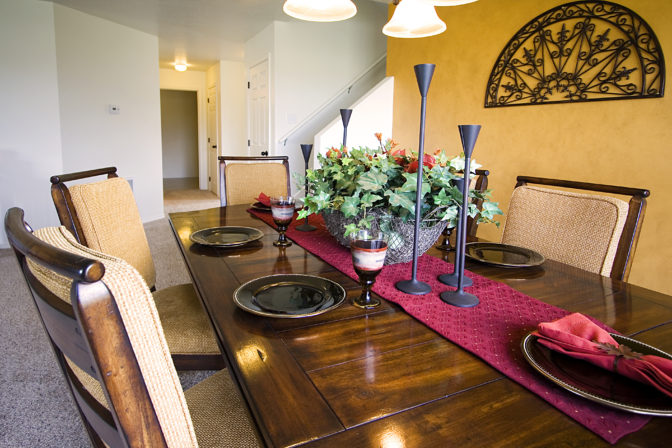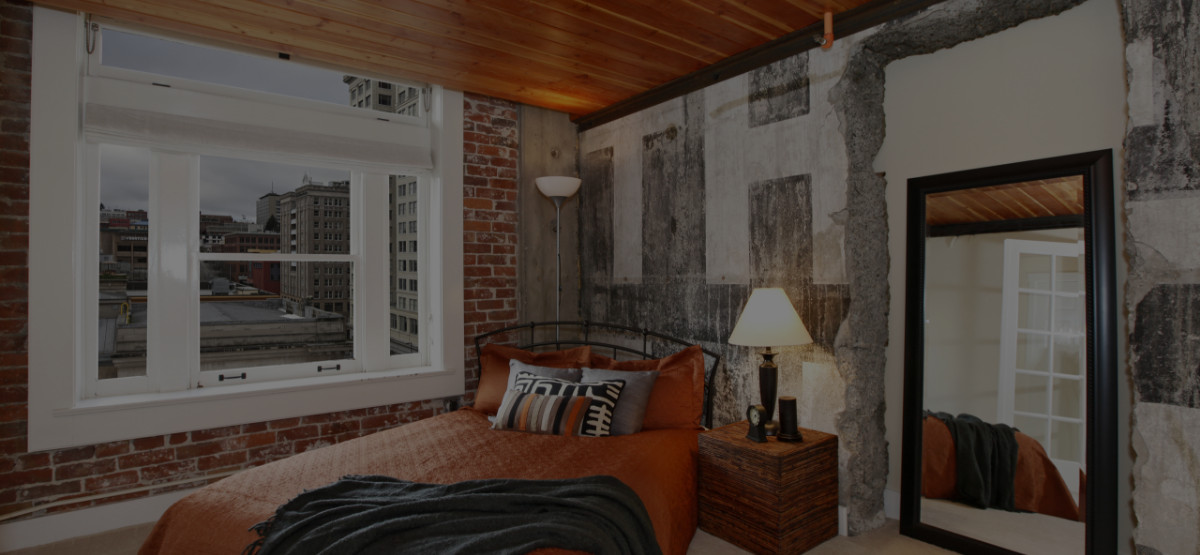Newly minted home stagers have plenty of opportunities—there will always be people looking to buy and sell homes! Many argue that the trickiest part of your first year as a home stager is getting your name out there and staking a claim in your area’s staging industry. It’s hard to set yourself apart from the competition, but it’s all about how you approach your business and your clients.
You’ve probably graduated from a training program with a certification, but what’s next? Getting your certification is only the first step in launching a career in the home staging industry. Turning your training into practical work experience doesn’t happen overnight. Here are some of the many things you can expect in your first year as a professional stager.
Your first job

Your first job won’t be anything like the glamorous depictions on TV. You won’t be strutting around a mansion, cameras in tow, sentencing anything and everything as ugly and tossing furniture and décor to the curb. In truth, your first job will probably be voluntary.
While you may want to hit the ground running and book high-paying jobs right off the bat, you’ll need to have some experience under your belt! Volunteering is a great opportunity to practice your skills while you network. You can volunteer to help an already established stager, or start simpler by staging a friend’s or relative’s home. If you do a great job, make sure that you have them review your professional services for your social media pages, business blog, or professional website.
Start-up Costs
Starting your own business isn’t just about coming up with a catchy name and drawing up logo designs (although that is part of it!). There’s a LOT more to it than that! With so many different factors to consider, including the marketing and financial aspects of owning your own business, it can be difficult to start your own business without any prior experience.
Many stagers choose to hold their own stock of furniture and décor items instead of renting them out for each project. But, as you can imagine, the start-up costs will be high if you go this route. You don’t want to invest all your money into something just to see it fall because of unexpected costs or on-going fees (business license, storage rent, insurance, etc.). Why not consider partnering up with another home stager or real estate agent? By splitting on start-up costs, you’ll have more money in your budget to grow your client base, promote your services, and build your portfolio.
Beginners beware

Expect to make lots of mistakes. It’s your first year, so it’s understandable that you may miss a couple details here and there. This doesn’t mean that you can continuously make the same mistakes over and over again, though! You have to learn from your mistakes and come up with solutions or work-arounds to avoid repeating them.
If something wrong happens that will affect your client’s interests, you must let them know what’s going on. You want your clients to trust you and you want to give them the best service for their money. A bad reputation will spread faster and further than a good one, and bouncing back can be incredibly difficult. Take your time to execute tasks and always be open and direct to the suppliers, clients, and real estate agents you’re working with.
You can’t please everyone.
Check out this scenario: You have a client whose expectations exceed their limited budget. If you’re a people-pleaser, you’ll probably be hesitant to give them the bad news and risk losing them as a client. So, you try to augment the budget by finding the lowest price supplies possible. The end result? You’ve invested too much time trying to find bargains and sacrificing quality or visual appeal by trying to conform to an unrealistic budget.
As a result, you’ve spent all their money, and the house still isn’t sold! It’s not fun to be the source of disappointment, but you’re the professional—so you know best. You’ve been trained to know the current market, up-and-coming trends, and effective staging techniques. Your clients should trust your opinion—after all, they hired you for a reason!
Remember to be honest with yourself and your client. Communicating honestly and openly with your client will make the process easy and you’ll have everyone on board should any complications or issues arise.
Build your network

If you haven’t started already, what are you waiting for? The reality is that networking is probably your best way to a job, especially if you don’t have a lot of real-world experience. Networking isn’t just restricted to connecting with your former boss or family members. Your network can expand to include your peers, friends, school, and community.
Interacting with other home stagers, real estate agents, or even decorating enthusiasts will do wonders for getting your name out there. If you’ve ever volunteered, interned or worked for another design professional, they’ll know your work already. They may be able to connect you with other job opportunities or employers because they are familiar with your strengths and skills. Fellow stagers may even know of clients they can’t take but would be willing to refer you to.
You can also try attending networking events or real estate and staging conventions to seek out other professionals who would want to work with an up-and-coming stager. You can even look online—just remember that nothing beats face-to-face interaction!
Stay healthy

Graduating from your training program fresh-faced and ambitious, you eagerly do anything and everything to get your career started. But trying to pursue any and all leads can lead to you stretching yourself too thin.
One of the key lessons you’ll learn in your first year is how to balance your work life and your personal one. It’s easy to go overboard as you’ll probably say to yourself, “I’ll only be doing these long days for a bit until I get on my feet”—but overworking yourself can be a dangerous habit.
You should establish boundaries between your personal and professional life so you won’t crash and burn after the first month. Remember to always set aside time for some R&R—a tired brain won’t be efficient and you may end up making petty mistakes you wouldn’t have made otherwise.


